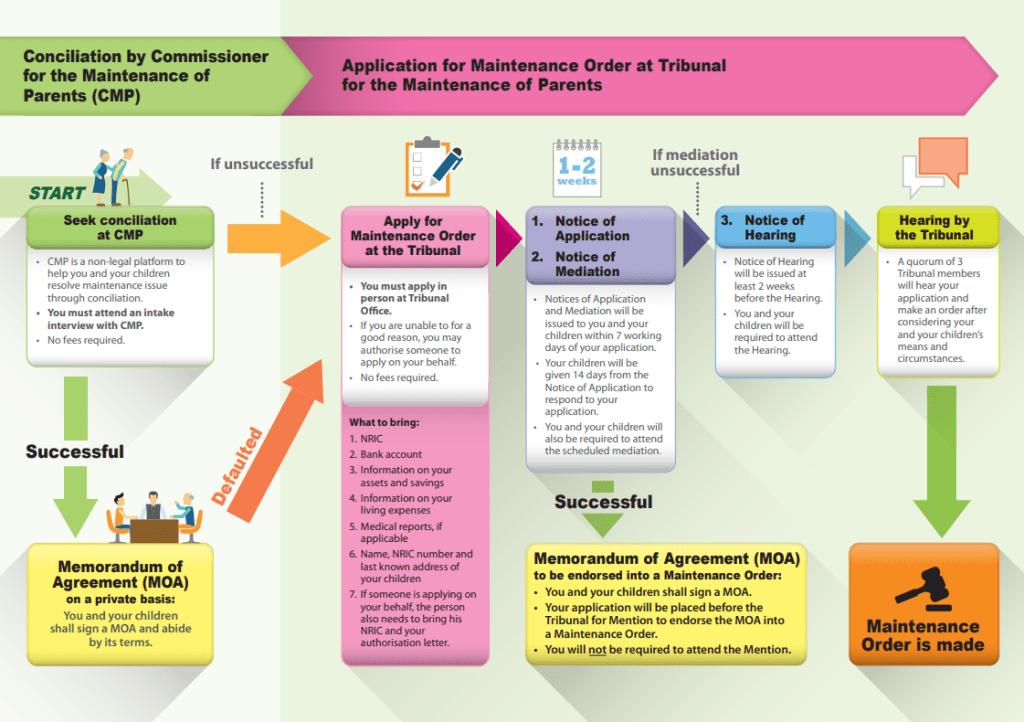





In November 1995, Singapore passed the Maintenance of Parents Act 1995 (“the Act”). It is conceivable that elderly parents may require support from their children due to old age or illness. The Act provides a legal mechanism for parents over the age of 60 to legally obtain maintenance from their children who are capable of supporting them, but are not doing so.
In worldwide societies and especially Asian cultures including Singapore, the basis of trust and obligation towards an older familial generation is filial piety. Filial piety is a value which prescribes that children have a moral obligation to care for their parents. As values that are intrinsic to Asian cultures, filial piety is taken as an undeniable social expectation, or even perhaps a responsibility.
In October 2021, a Work Group was set up in Singapore to review the Act and propose changes to the Act in alignment with societal developments. The Work Group proposed the following 4 amendments and are at present seeking public consultations and feedback:
It appears that the amendments aim to put in place a fair, reliable, rehabilitative and conciliatory framework when parent-child/children issues are considered within the realm of the Act. This is welcomed though these amendments cannot come at a cost of erosion of societal values, responsibilities and culture.
The proposed amendments create a wall of protection in the form of a tribunal before abusive parents approach their children for financial help. It also provides for the rehabilitation of wayward parents and reconciliation in broken families.
On the other hand, it would be impossible for a tribunal to conceive and understand the circumstances which resulted in the negativity between a child and their parents. This would include having an insight into instances which occurred many years ago, in the child’s younger days. It may also include considering the trials and tribulations faced by the parents during their parenthood, which may include broken marriages. The child may also have been ill-mannered or insubordinate, which required some form of disciplining. These form a maze of circumstances which an “outsider” tribunal may not be able to navigate and understand in coming to a decision. This is all the more unpalatable when the tribunal’s decision may have a tremendous impact on the remaining life of an elderly parent.
The proposed amendments may also allow a child to derogate from their obligation of filial piety and their obligation to care for their elderly parents. This does not bode well with the notion of being grateful that we were only given the opportunity of life through our parents. Be that as it may, a bigger question looms. If a child does not provide for his/her elderly parents, who will? Will the Government step in to shoulder the yoke of providing for elderly and needy parents?
Regardless of these conflicting thoughts, 75% of people approached in a survey supported the proposed amendments. Given this public backing, in the first quarter of 2023, a Private Member’s Bill will be tabled to amend the Act. This may very well represent the start of a paradigm shift in the value of filial piety.
If you are seeking legal advice or litigation services on similar matters from professional lawyers in Singapore, please contact us through our enquiry form.

We provide solutions to the table for all our clients regardless of the scale or complexity of the cases. Let us know how we can help.
Contact Us